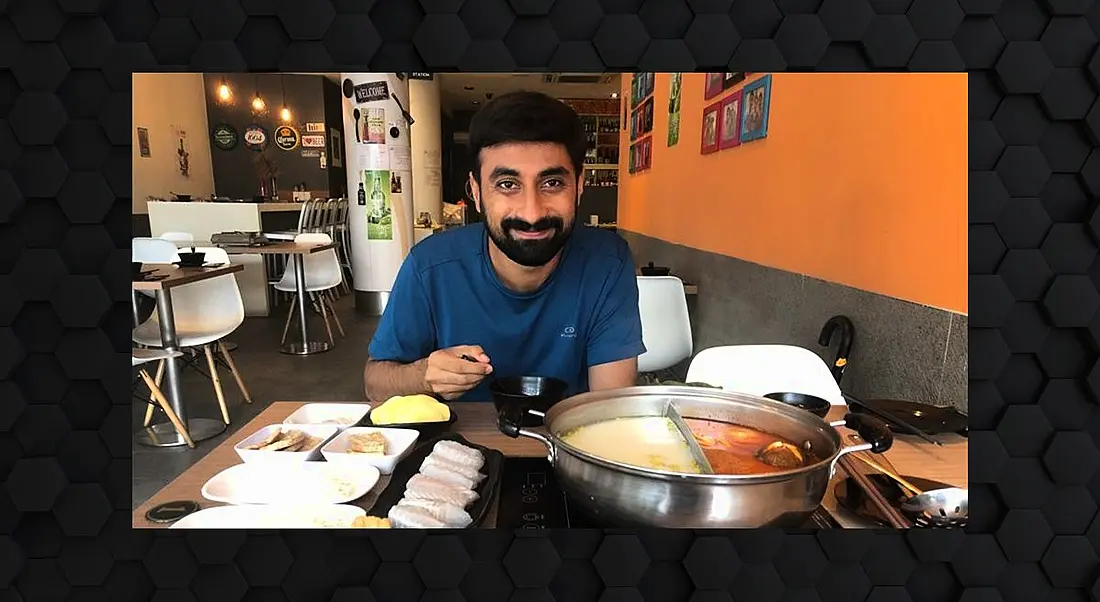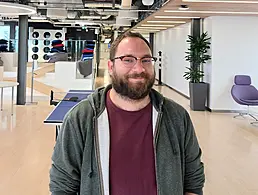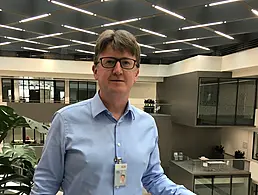ACIA’s Sachi Gowda discusses his relocation from ‘the Silicon Valley of India’ to Singapore and the biggest differences between the two locations.
Relocating from a home you know and love so well to an entirely new country can sound daunting, but it can also be a wonderful and rewarding experience.
Luckily for Sachi Gowda, an associate director in health analytics at Aon Centre for Innovation and Analytics (ACIA), he did not hit any major challenges when he relocated from India to Singapore.
He attributed this to being only a four-hour plane ride away from visiting friends and family back home and to the welcoming nature of Singapore.
‘The biggest part of my life here in Singapore has to be the people I have met long the way’
– SACHI GOWDA
Where are you from and what’s it like there?
I come from Bangalore – it’s often called the Silicon Valley of India. The city hosts lush gardens and is also home to one of the most vibrant social settings in the region. Some of the world’s largest tech companies are located in the city and we have seen Bangalore transform over the years from a slow-paced summer retreat to a rapid tech hub.
I miss the old vibe of the city but have no complaints about how the city has transformed because it exposed me to different cultures, people, career opportunities and much more. Happy to be a tour guide to anybody who wishes to visit my city!
How long ago did you relocate and what prompted your decision?
I have lived in Singapore for about eight years now. Prior to moving here, I was working at a firm that helps to manage and optimise cloud operations. After five years, I decided to quit and pursue my master’s degree in business analytics to diversify my skillset. The main challenge I posed myself at that time was to get out of my comfort zone and explore opportunities that would allow me to grow not just professionally but personally as well.
I had always wanted to visit Singapore as a tourist but the decision to move here permanently in pursuit of something different and interesting was influenced by various factors. The country had always been a step ahead in adapting to ever-changing technological advancements and continues to be one of the leading hubs for financial institutions, start-up ecosystems and technology.
Singapore Management University (SMU), National University of Singapore and Nanyang Technological University are all leading universities in Singapore and have been growing rapidly, opening doors wide for greater opportunities and attracting thousands of foreign students like myself.
The most important factor, however, is the fact that Singapore is one of the safest countries in the world and a melting pot of cultures and races. These were strong enough reasons for me to move to Singapore.
Describe your role in ACIA.
As a technical product owner, I lead the development of analytical solutions that leverages our proprietary data sources to drive affordable healthcare for our clients and help our insurer partners to deliver value by identifying areas of innovation and unmet client needs.
Understanding and leveraging existing and new technological capabilities forms a big part of my role and hence, on any typical day, you would find me working closely with our engineering and analytics group to create and find solutions to resolve the problems that matter the most through data, analytics and our digital platform. These solutions enable our colleagues to drive engaging conversations and support our consulting and broking functions.
What do you like the most about your job?
ACIA has some of the most amazing talent, no doubt. People come from diverse backgrounds and experience, all looking to innovate and make an impact, and this is what makes ACIA a special place. We look forward to working and learning from each other every single day.
I will soon complete five years at Aon and cannot recall a single dull moment. The culture at ACIA is a true reflection of the culture at Aon where everyone is given equal access to opportunities without any bias or discrimination. Promoting diversity and inclusion is not just a buzzword but a practice that our leaders and colleagues follow everyday. This is what drives me to achieve my best and enjoy my job every day
What were the biggest challenges of relocating?
Surprisingly, and I am not sure if it’s just me, I never had any major challenges when I relocated. It could probably be because I always knew that I was only four hours away by flight from home and if I ever felt the need to visit my parents and friends back home, it would be quite easy to go home for a weekend. So, the notion that I was relocating to another country didn’t really hit me that hard.
I will add, however, that one has to appreciate Singapore as well and how it makes you feel welcome when you first arrive – the local lifestyle is easy to get used to, travelling to any part of the city is straightforward and affordable, language has never been a barrier as people are multilingual, and of course the food is amazing.
What were the major differences between your previous location and your new one?
I don’t spend two hours on the road any more to reach my workplace. But busy roads apart, both Bangalore and Singapore are beautiful in their own way. Like how Singapore is home to thousands of expats, Bangalore is home to millions of people migrating from other parts of the country for education or work and is now one of the most culturally diverse cities in India.
But in spite of Bangalore becoming more cosmopolitan, one can still trace its hundreds of years of history; there are so many parts of the city that have remain unchanged that it keeps reminding me of who we are.
Singapore on the other hand aims to be the perfect model city that the world can look up to. It is a city with probably the best infrastructure, healthcare facilities, educational institutions and these are the factors that have really transformed the city into this attractive destination for many people like me. It continues to set newer, higher targets and strive for that perfect balance between the present and future needs and this dynamic is what differentiates Singapore from any other city.
So while Bangalore looks at preserving its past and yet staying cosmopolitan, Singapore aims to challenge the status quo by pushing its boundaries. This is what makes both these places so similar yet so different and special in their own ways.
How does your working life and other forms of support help you make you feel at home there?
The biggest part of my life here in Singapore has to be the people I have met long the way. SMU is where it all began. I met so many incredible people with whom I continue to be best of friends. At Aon, I am constantly surrounded by colleagues who are supportive and are willing to step out of their way to help me with any challenges.
Back home, I am constantly in touch with my parents and my sister, taking them along my journey. I continue to keep in touch with my friends from my school and university days and in spite of the distance, we still manage to catch up on every major milestone in our lives.
Knowing that I have this support system around me when I need them the most gives me a lot of confidence and makes me feel more comfortable and at home.
What do you like most about your adopted home?
I am a foodie and I love to indulge in anything that tickles my taste buds. You can indulge in the fanciest Michelin star restaurants or go to local hawker centres for affordably priced, equally impressive and mouth-watering dishes.
Singapore has a lot to offer, be it sporting events, music festivals, art galleries or museums, there is something for everyone. Singapore is also a major travel hub, which makes it so easy and irresistible to travel and explore other countries around Asia and other parts of the world. It truly is home away from home.
What advice would you give to others who are planning to relocate for work?
Be open to new culture and people and more importantly be a good representative of your own culture. You never know how much you can surprise yourself. This makes it much easier to adapt and enjoy your experiences.




